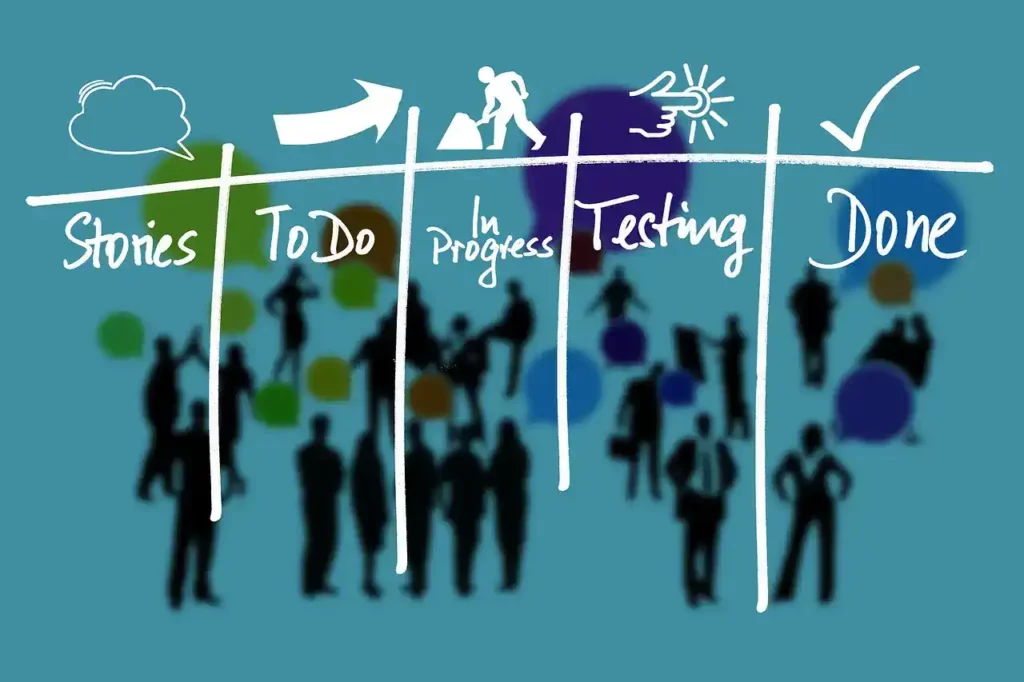10 Productivity Tips for Beginners: Boost Your Efficiency and Achieve More
If you’re new to the world of productivity and want to make the most of your time, you’ve come to the right place. In this article, we’ll share valuable tips and techniques to help you enhance your productivity and accomplish your goals effectively. So, let’s dive in and unlock your potential!
These tips are easy to follow and can help you to get more done in less time.
Here are a few productivity tips for beginners:
- Set goals. The first step to being more productive is to set goals. What do you want to achieve? Once you know what you want to achieve, you can start to develop a plan to get there.
- Break down large tasks into smaller ones. Large tasks can be daunting, so it’s helpful to break them down into smaller, more manageable tasks. This will make the tasks seem less overwhelming and more achievable.
- Eliminate distractions. Distractions are one of the biggest productivity killers. When you’re trying to be productive, it’s important to eliminate as many distractions as possible. This means turning off your phone, closing unnecessary tabs on your computer, and finding a quiet place to work.
- Take breaks. It’s important to take breaks throughout the day, even if it’s just for a few minutes. Getting up and moving around will help you to stay focused and productive.
- Reward yourself. When you reach a goal, reward yourself. This will help you to stay motivated and on track.
Following these tips can help you to be more productive and get more done in less time.
If you want to learn more indepth about how to be more productive I recommend that you continue reading on this article.
10 Productivity Tips for Beginners
Here are my top 10 productivity tips for beginners!
- Simplify your surroundings: Take control of your surroundings. Focus on what you can control, and work from there.
- Close out your email tab or set up an autoresponder: Switch your phone and instant message platform to “do not disturb” mode. Use a browser blocker to avoid time-wasting sites.
- Reduce stress: Without effective time management, it can feel like you never have enough time at work. You might feel like you’re running around and putting out fires—which can lead to increased stress and, ultimately, burnout.
- Focus on one task at a time: When we concentrate on more than one activity at a time, we tend to use more of that time just for transitioning between tasks. (Indeed)
- Prioritize your tasks: Make a list of tasks in order of importance and urgency.
- Take breaks: Taking breaks can help you stay focused and productive.
- Use a timer: Set a timer for a certain amount of time to work on a task, then take a break.
- Delegate tasks: If you have too much on your plate, delegate tasks to others.
- Stay organized: Keep your workspace and digital files organized to save time and reduce stress.
- Learn to say “no”: Don’t take on more than you can handle. Learn to say “no” when necessary.
Understanding Productivity

To kick things off, it’s crucial to understand what productivity really means. Productivity is about maximizing your output while optimizing your time and resources. It’s not just about being busy; it’s about achieving meaningful results. By focusing on the right things and working efficiently, you can make significant progress toward your goals.
Setting Your Goals
Setting clear goals is a fundamental step in improving productivity. When you have a clear direction, it becomes easier to prioritize your tasks and stay focused. Take some time to define your short-term and long-term goals. Make sure they are specific, measurable, achievable, relevant, and time-bound (SMART). Your goals will serve as a compass, guiding you through your productivity journey.
Prioritizing Your Tasks
Once you have your goals in place, it’s time to prioritize your tasks. Not all tasks are created equal, and some hold more significance than others. Identify the tasks that align with your goals and have a high impact. Focus on those first, as they will bring you closer to your objectives. By prioritizing effectively, you’ll ensure that your time and energy are invested in the right places.
The Importance of Saying No
As you embark on your productivity journey, it’s crucial to learn the art of saying no. Many opportunities and requests may come your way, but not all of them will align with your goals and priorities. Learn to assess each request and say no to those that don’t contribute to your overall productivity. By setting boundaries and staying focused, you’ll have more time and energy for the tasks that truly matter.
Understanding Urgent Vs Important Tasks
One common productivity pitfall is getting caught up in urgent tasks that may not necessarily be important. It’s essential to differentiate between tasks that require immediate attention and those that are crucial for long-term success. Urgent tasks often demand immediate action, but important tasks contribute to your overall goals and vision. Strive to find a balance between handling urgent matters and dedicating time to important tasks that drive your progress.
Organizing Your Tasks
To stay on top of your productivity game, it’s essential to organize your tasks effectively. Creating a task list is a simple yet powerful technique. Write down all the tasks you need to accomplish, and as you complete each one, check it off. This visual representation of progress will boost your motivation and keep you focused on moving forward. Additionally, scheduling appointments and allocating specific time slots for tasks will help you manage your time efficiently.
Creating a Task List
Creating a task list is a vital step in organizing your work and boosting your productivity. Start by listing all the tasks you need to accomplish, whether they are related to your personal life, work, or other commitments. Break down larger tasks into smaller, more manageable subtasks. By having a comprehensive task list, you can visualize your workload and prioritize accordingly. Update your list regularly, add new tasks, and check off completed ones. This practice not only keeps you organized but also gives you a sense of accomplishment as you see your progress.
Scheduling Appointments
Efficiently managing appointments is crucial for staying organized and ensuring you allocate time for important commitments. When scheduling appointments, consider the nature of the task, its priority level, and the time it will require. Use a digital calendar or planner to mark the date, time, and duration of each appointment. Set reminders to help you stay on track and ensure you’re well-prepared. Remember, effective scheduling allows you to balance your responsibilities, avoid conflicts, and make the most of your time.
Commitments and Responsibilities
In your pursuit of productivity, it’s important to honor your commitments and responsibilities. Be accountable for the tasks you’ve committed to, whether they are personal or professional. By fulfilling your obligations, you build trust, credibility, and a reputation for reliability. Remember, being productive is not just about personal achievements but also about fulfilling your commitments to others.
Productivity Techniques (Productivity Tips for Beginners)

Now, let’s explore some effective productivity techniques that can revolutionize the way you work:
The Pomodoro Technique
This technique involves working in short bursts, typically 25 minutes, followed by a 5-minute break. After completing several cycles, take a more extended break. This method helps maintain focus and prevents burnout.
Deep Work
Deep work refers to a state of uninterrupted, focused work on a single task. Eliminate distractions, find a conducive environment, and dedicate undivided attention to your work. Deep work leads to increased productivity and better results.
The 80/20 Rule
Also known as the Pareto Principle, this rule suggests that 80% of your results come from 20% of your efforts. Identify the tasks or activities that have the most significant impact on your goals and prioritize them accordingly.
Managing Distractions
Distractions can derail your productivity, but with the right strategies, you can overcome them:
Handling Emails
Designate specific times during the day to check and respond to emails. Avoid constantly checking your inbox, as it can disrupt your workflow. Set boundaries and establish email management practices that work best for you.
Dealing with Interruptions
Interruptions can disrupt your focus and flow. Minimize interruptions by setting boundaries with colleagues or family members, communicating your availability, and finding a quiet space where you can concentrate.
Multitasking vs. Focusing
Multitasking may seem like a way to accomplish more, but it often leads to decreased efficiency. Instead, focus on one task at a time and give it your full attention. You’ll find that you accomplish more with higher quality results.
Productivity Tools

Leveraging technology and automation can significantly enhance your productivity:
Technology and Productivity
Utilize productivity apps, project management tools, and digital calendars to streamline your workflow, track your progress, and manage your tasks effectively.
Automation Tools
Explore automation tools that can handle repetitive and time-consuming tasks. By automating certain processes, you free up valuable time and energy for more critical work.
The Role of Pen and Paper
Despite the digital age, pen and paper still have their place in productivity. Jotting down ideas, creating mind maps, or sketching out plans can stimulate creativity and help you stay organized.
Maintaining Momentum
Sustaining momentum is crucial for long-term productivity success:
The Role of Breaks
Taking regular breaks is essential for maintaining focus and avoiding burnout. Incorporate short breaks into your work routine to recharge your energy and enhance your productivity when you return to tasks.
Avoiding Burnout
Pushing yourself too hard without proper rest can lead to burnout. Prioritize self-care, get sufficient sleep, exercise regularly, and maintain a healthy work-life balance to avoid exhaustion and maintain consistent productivity.
Staying Motivated
Set milestones and reward yourself when you achieve them. Find sources of inspiration, surround yourself with a supportive network, and remind yourself of your goals and the progress you’ve made. Stay motivated by celebrating your accomplishments along the way.
The Role of Communication

Effective communication plays a pivotal role in productivity. Clear and concise communication ensures that everyone involved understands their roles, tasks, and expectations. Whether you’re working on a team project or collaborating with clients, fostering open lines of communication promotes efficiency and minimizes misunderstandings. Be proactive in sharing progress updates, seeking clarification when needed, and providing feedback to ensure smooth workflows and successful outcomes.
Efficiency and Creativity
Contrary to popular belief, efficiency and creativity can coexist and even enhance each other. While efficiency focuses on optimizing resources and processes, creativity brings fresh perspectives and innovative solutions. Embrace creative thinking by exploring different approaches to tasks, brainstorming ideas, and encouraging out-of-the-box thinking. Efficiently managing your time and tasks provides you with the freedom to dedicate mental space to creativity, resulting in unique and effective outcomes.
Side Projects and Creativity
Engaging in side projects can fuel your creativity and enhance your overall productivity. These projects allow you to explore new interests, experiment with different skills, and step outside your comfort zone. Side projects provide an opportunity to break away from routine tasks and inject excitement into your work. They can reignite your passion, inspire fresh ideas, and ultimately improve your productivity in all areas of life.
Efficiency in Task Completion
Efficiency in task completion is a crucial aspect of productivity. It involves optimizing the way you approach and complete tasks to achieve the desired results in the least amount of time. Look for ways to streamline your processes, eliminate unnecessary steps, and leverage your strengths. Prioritize tasks based on their importance and urgency, and focus on one task at a time to minimize distractions. Developing efficient work habits will not only boost your productivity but also free up time for other important activities.
Planning and Time Management
Planning and time management are foundational elements of productivity. By investing time in planning, you gain clarity on your goals, priorities, and strategies. Set aside dedicated time to plan your days, weeks, and months in advance. Break down larger goals into actionable steps and allocate specific time slots for each task. Effective time management allows you to optimize your productivity, minimize procrastination, and maintain a balanced approach to work and personal life.
The Importance of Planning
Planning is the backbone of productivity. It provides structure, clarity, and direction to your efforts. When you have a well-defined plan, you can eliminate guesswork and make informed decisions about how to allocate your time and resources. Planning enables you to anticipate potential challenges, allocate sufficient time for each task, and identify dependencies. By setting clear objectives and creating a roadmap, you increase your chances of success and minimize wasted time and effort.
Effective Time Management
Effective time management empowers you to make the most of your available time. It involves allocating time for tasks based on their importance, deadlines, and energy requirements. Practice prioritization, eliminate time-wasting activities, and be mindful of how you spend your time. Set realistic deadlines and manage your workload by breaking it down into manageable chunks. By mastering time management, you’ll experience reduced stress, increased productivity, and a sense of accomplishment.
Conclusion
Remember, productivity is a journey, and it requires consistent effort and practice. Embrace these strategies, adapt them to your unique circumstances, and fine-tune them as you progress. By implementing these tips and techniques, you’ll enhance your efficiency, achieve your goals, and experience a greater sense of fulfillment in all areas of your life.
Now it’s time to take action! Start implementing these productivity tips for beginners today and witness the positive impact they have on your daily life. Good luck on your productivity journey, and here’s to your continued success!
Related:


